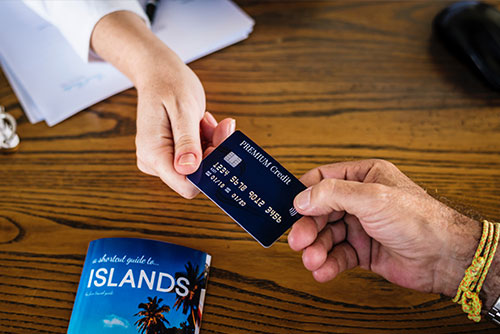The best and worst ways to carry cash overseas
How you handle your money while you are away – especially when travelling abroad – should not be taken lightly as you don’t want to land up paying more than you need to for anything, especially when you consider the frightening exchange rates we’re currently travelling with.
Gone are the days of travellers’ cheques. There are several ways you can choose to carry and spend your cash overseas but as always, it’s important to do your research about what the best option for you will be.
As always, MoneyShop has your back so we’ve put together what we love and loathe about spending your money in a foreign country.
Cash
Pros:
- having cash on hand when you arrive at your destination is important for those immediate expenses you will have such as catching a taxi to your hotel
- cash is also perfect for small purchases such as drinks, food or a train ticket, as you don’t want to have to pay bank charges that cost more than the item you bought just because you had to swipe your card
- carrying cash is convenient allows you to know exactly what you’ve spent and how much you have left of your allocated budget
Cons:
- carrying cash can be a security risk
- if your cash is stolen, it’s simply gone with no insurance recourse
- when exchanging currency you will have to pay the bank fees and commissions, which means that you will lose a little bit of money on the transaction
*Something to remember: when exchanging your Rands for foreign currency, research which banks will give you the cheapest fees and take the lowest commission. We advise exchanging your money before you leave but if you don’t you should avoid doing it through your hotel when you get there, as they usually spike their rates – if you can, use a reputable Bureau De Change.
Debit & credit cards
Pros:
- if your card is stolen, it is easy to block it and you don’t have to pay for any purchases made after reporting it stolen
- depending on your credit card benefits, you could earn reward points for swiping overseas
- MasterCard and Visa are accepted in majority of places around the world
- you can draw cash from your credit card (with fees)
Cons:
- not all debit cards are compatible with all ATMs or point-of-sale devices so you could still find yourself hunting for cash or battling to pay when you thought you would have it easy
- you could be in for additional bank charges, besides the normal service fee.
- it’s not always that easy to track what you’ve spent, especially with additional fees and the fluctuating exchange rate
*Something to remember: you need to let your bank know that you will be using your card overseas otherwise their anti-fraud department may suspend services.
It is best to familiarise yourself with all of these charges you may face before you leave and for all the 2015 charges for international ATM and point-of-sale payments with your South African credit and debit cards, you can visit Travpacker.
Travel cards
Pros:
- most travel cards are powered by either MasterCard or Visa, which means it will be accepted everywhere
- the exchange rate that you bought your money at will never change, no matter if there are fluctuations in the market i.e. if you bought your Pounds at R21, your purchases will always be worked out according to this amount, even if the Pound rises
- low fees
- with certain cards, you won’t pay for card swipes – only when you withdraw cash
- easy to cancel if it gets stolen
- secure due to chip and pin
- you almost always get a back up card
- you can get specific cards for specific currencies
Cons:
- once your money runs out, it is hard to get money transferred into the card
- if you purchase in a currency that is not the same as the card, you will have to pay extra fees
*Something to remember: there are so many travel cards available in South Africa, each with its own rules and fee structures. The best advice we can give you is to compare which one will benefit you the most. Here are some of the top travel cards that you can get:




